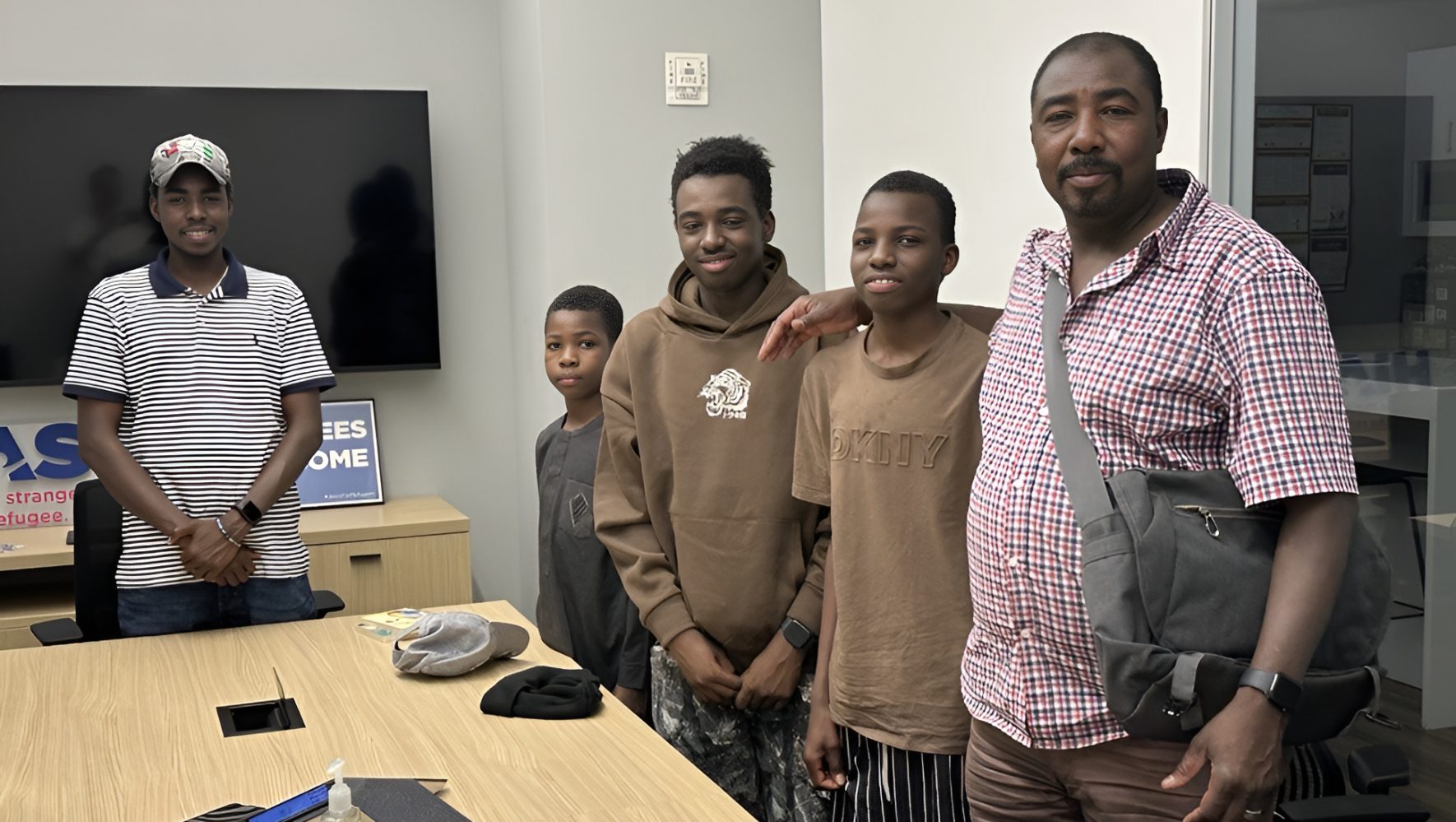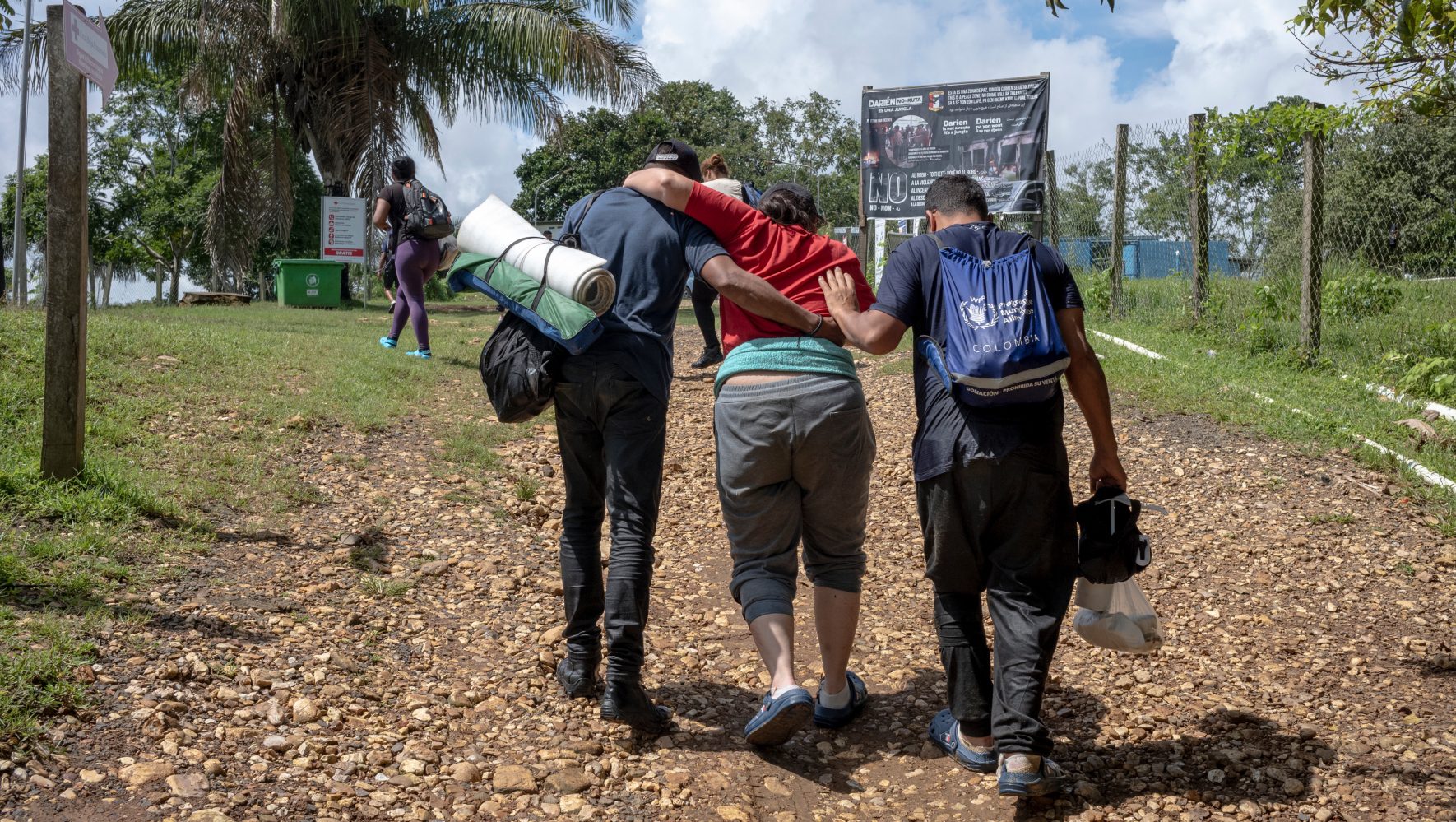Protecting Refugee Survivors of Sexual and Gender-Based Violence
By Zhanna Veyts, HIAS.org
Dec 09, 2014
[[{"fid":"892","view_mode":"default","fields":{"format":"default","field_file_image_alt_text[und][0][value]":"HIAS - Triple Jeopardy - Full Report - Cover","field_file_image_title_text[und][0][value]":"Triple Jeopardy - Full Report - Cover"},"type":"media","attributes":{"alt":"HIAS - Triple Jeopardy - Full Report - Cover","title":"Triple Jeopardy - Full Report - Cover","style":"border-width: 1px; border-style: solid; margin: 5px 10px; width: 250px; height: 323px; float: right;","class":"media-element file-default"}}]]Refugees across the globe are often vulnerable to sexual and gender-based violence (SGBV), whether due to conflict in their countries of origin or because of the instability inherent in the migration process. There is increasing awareness that certain refugee populations – specifically older people, people with disabilities, male survivors and sexual minorities – are often overlooked in SGBV prevention and response.
Triple Jeopardy: Protecting At-Risk Refugee Survivors of Sexual and Gender-Based Violence, a new HIAS-authored report released December 9 at the UNHCR High Commissioner’s Dialogue on Protection in Geneva, Switzerland, addresses the barriers to protective services facing these particularly vulnerable populations of SGBV survivors.
Based on over 200 interviews with refugees and organizational stakeholders in Chad, Kenya, South Africa and Uganda, Triple Jeopardy highlights the challenges facing government agencies, UNHCR and NGOs to fully integrate these at-risk groups into their SGBV programs. The report identifies the particular protection gaps that these at-risk refugees face, highlights best practices, and makes recommendations that will help SGBV survivors to fully recover and rebuild their lives in dignity.
With Triple Jeopardy, HIAS and our research partners hope to empower service providers and refugee communities to create environments where at-risk refugees are able to access greater protection from sexual and gender-based violence, and to allow survivors to fully recover and rebuild their lives in dignity.
"We are proud that the key theme of this report – recognizing the diversity and rights of all survivors – is at the cutting edge of humanitarian approaches to SGBV at the global level and increasingly being adopted by international agencies and governments around the world," said Rachel Levitan, HIAS’ Associate VP, Global Programs and Strategy.
On January 29, 2015, HIAS will host an event in Washington, DC to present the report. An event is planned for New York in February. HIAS will also conduct training workshops and thematic working groups in Chad, Kenya, South Africa and Uganda in February and March.
Read the Triple Jeopardy Executive Summary
Watch the companion video.



